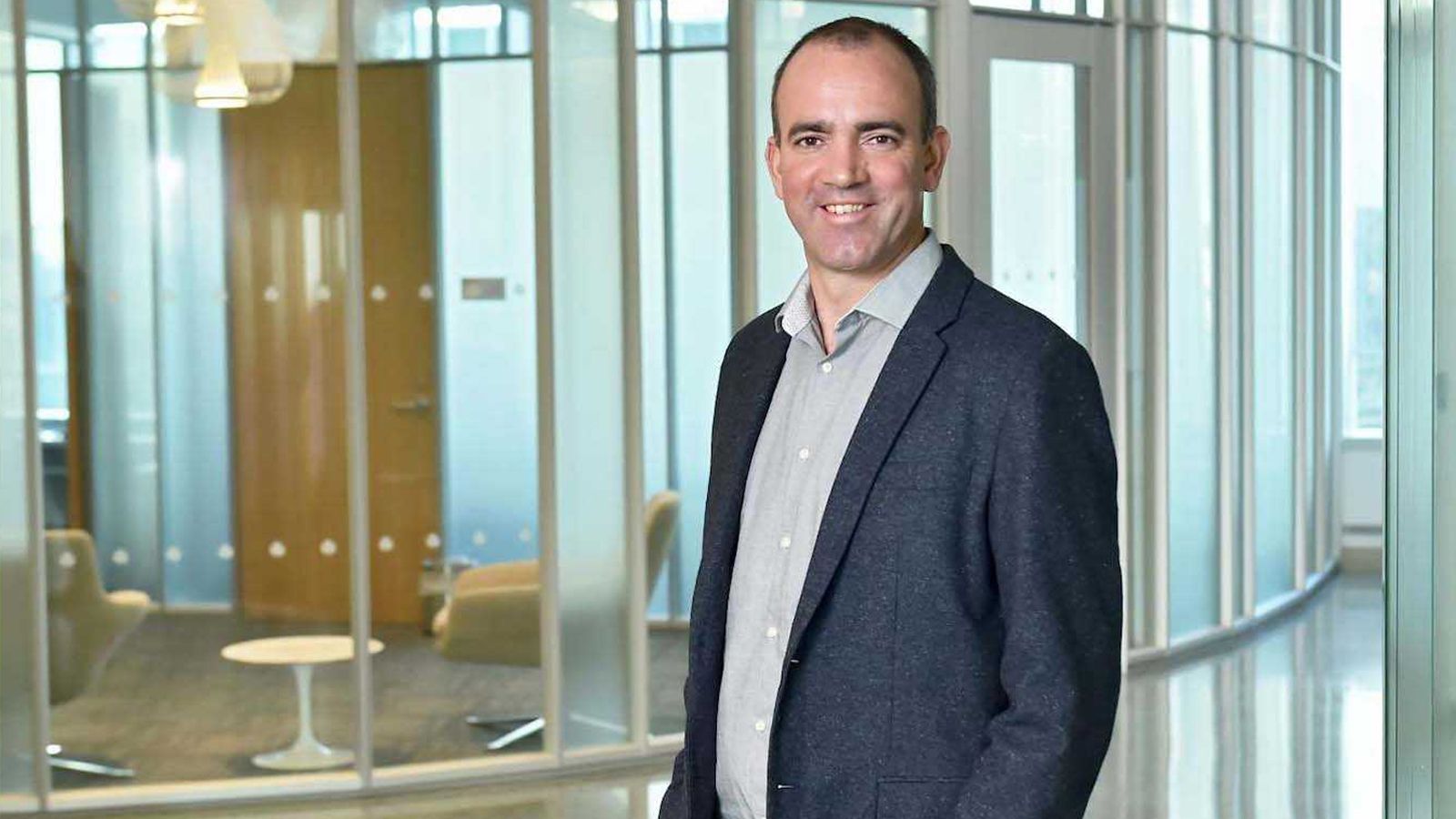Rein Ulijn, the Einstein Professor of Chemistry at Hunter College and founding director of the Nanoscience Initiative at the Advanced Science Research Center at The Graduate Center, CUNY (CUNY ASRC), has been awarded a U.S. Department of Defense’s Vannevar Bush Faculty Fellowship — the agency’s most prestigious single-investigator award. The fellowship supports top-tier researchers at U.S. universities whose high-risk, high-reward work is of strategic importance to the Department of Defense. The five-year fellowship will provide $3 million to support Ulijn’s work to understand how complex mixtures of molecules acquire functionality, and to repurpose this understanding to create new nanotechnology that is inspired by living systems.
"I'm very excited to have been selected as a 2021 Vannevar Bush Faculty Fellow," said Ulijn. "It's a true honor and massive credit to my research team that the Department of Defense has chosen to support our research. The award comes at a very good time for my lab. We have made a lot of progress recently in our ability to analyze the behavior of molecules in complex mixtures using both experiments and computation. The Award will give us the critical mass to accelerate this research and the freedom to explore new directions and connections. I am excited about what lies ahead."
Join me in congratulating @Hunter_College Prof Rein Ulijn (@UlijnGroup) for receiving the prestigious @DeptofDefense Vannevar Bush Fellowship, a stunning achievement which affirms the importance of his research on a national, and even global, level! https://t.co/Rdaj4oVp9l
— Jennifer J. Raab (@nyscfpresident) May 7, 2021
The fellowship is supporting research rooted in the knowledge that all living systems are made from conserved sets of chemically simple biological building blocks. Nature’s complexity and functionality arise from the endless number of interactions between these building blocks in time and space. The molecular basis of biological functions has mostly been studied using reductionist approaches that focus on one or a small number of biological molecules at the time. Ulijn’s approach is fundamentally different because it does not start with the study of individual, known biomolecules. Instead, it begins with an unbiased, holistic study of mixtures of molecules that individually are simple and non-functional. As components of complex interacting systems, however, they give rise to functions such as chemical recognition, catalysis, energy conversion and motility. Using this method, Ulijn’s expects to identify insights that allow his team to repurpose nature’s molecules to design new functions that currently are not known in biology. The combination of complex science, biophysical chemistry and nanoscience could ultimately produce breakthrough materials and modalities with diverse applications in biomedicine, green technology and more.
The Vannevar Bush Fellowship supports out-of-the-box ideas where researcher creativity intersects with the unknown. Fellows are free to pursue unfettered research, with the results of the work informing and providing invaluable direction to the Department of Defense’s research and efforts to train the next generation of scientists and engineers.


